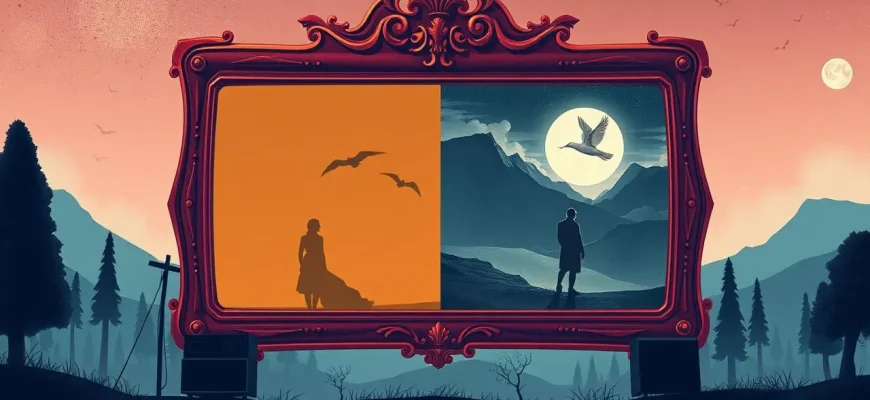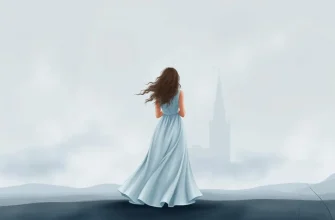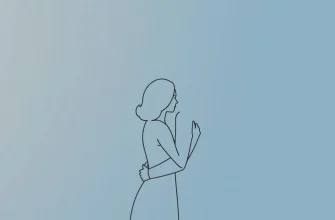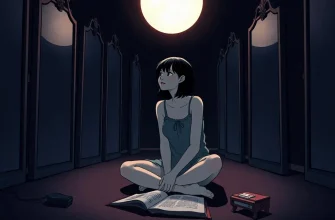Dive into the world of melodramas where the line between reality and illusion blurs, creating a tapestry of emotions, love, and confusion. This curated list of films explores the theme of hallucinations, offering viewers a chance to experience the depth of human psyche through the lens of romance and drama. Each film in this collection not only entertains but also challenges our perceptions of what is real, making for a thought-provoking cinematic journey.

The Ninth Gate (1999)
Description: Dean Corso, a rare book dealer, delves into the occult world, experiencing visions and hallucinations that lead him to question reality and the supernatural.
Fact: The film was directed by Roman Polanski, known for his interest in the supernatural. The book in the film is a fictional creation.
 Watch Now
Watch Now 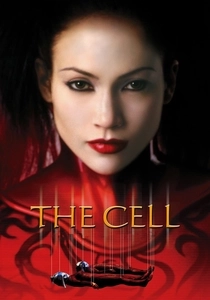
The Cell (2000)
Description: A psychologist enters the mind of a comatose serial killer to find his latest victim, experiencing his twisted hallucinations and confronting her own fears.
Fact: The film's visual effects were groundbreaking at the time, blending CGI with practical effects to create surreal dreamscapes.
 Watch Now
Watch Now 
The Others (2001)
Description: Grace, living in a secluded mansion with her children, begins to suspect the house is haunted, but the truth involves her own perception and reality.
Fact: The film was shot in Spain, using a real mansion to create the eerie atmosphere. The ending was a closely guarded secret during production.
 Watch Now
Watch Now 
Donnie Darko (2001)
Description: After narrowly escaping a bizarre accident, Donnie begins to experience visions of a figure in a rabbit suit who manipulates him to commit acts that blur the line between reality and hallucination.
Fact: The film was initially a box office flop but gained a cult following. The director's cut provides more insight into the complex narrative.
 Watch Now
Watch Now 
A Beautiful Mind (2001)
Description: This film tells the story of John Nash, a brilliant mathematician whose genius is overshadowed by his struggle with schizophrenia, leading to vivid hallucinations that intertwine with his love life.
Fact: Russell Crowe gained weight for the role to portray Nash's physical decline. The film was inspired by Sylvia Nasar's biography of the same name.
 Watch Now
Watch Now 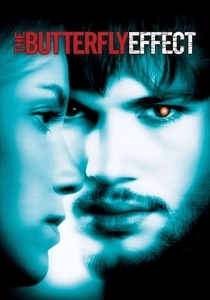
The Butterfly Effect (2004)
Description: Evan Treborn discovers he can travel back in time to his traumatic childhood moments, but each change he makes leads to unforeseen consequences and hallucinations.
Fact: The film had multiple endings, with the theatrical release being the most controversial. Ashton Kutcher was initially reluctant to take on such a dramatic role.
 Watch Now
Watch Now 
The Machinist (2004)
Description: Trevor Reznik, an insomniac machinist, experiences hallucinations and paranoia, leading him on a dark journey to uncover the truth behind his deteriorating mental state.
Fact: Christian Bale lost over 60 pounds for the role, showcasing his commitment to portraying Reznik's physical and mental decline.
 Watch Now
Watch Now 
Black Swan (2010)
Description: Nina, a ballerina, descends into madness as she prepares for the dual role of the White and Black Swan, experiencing hallucinations that blur her reality with her performance.
Fact: Natalie Portman trained for a year to perform the ballet sequences. The film's ending was kept secret from the cast until the final day of shooting.
 Watch Now
Watch Now 
Shutter Island (2010)
Description: U.S. Marshal Teddy Daniels investigates the disappearance of a patient from a psychiatric facility, only to find himself questioning his own sanity and reality.
Fact: The film was shot on location at the old Medfield State Hospital in Massachusetts. Martin Scorsese was inspired by the novel's psychological depth.
 Watch Now
Watch Now 
The Jacket (2005)
Description: Jack Starks, a Gulf War veteran, is subjected to experimental treatments that send him into the future, where he must navigate his hallucinations to change his fate.
Fact: Adrien Brody was drawn to the role due to the film's exploration of time travel and mental health. The film was shot in Scotland.
 30 Days Free
30 Days Free 
